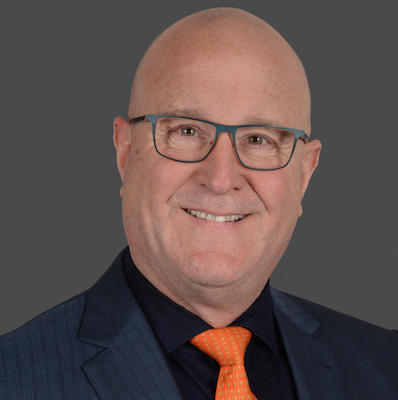Leesburg, Virginia quantum software company Quantum Computing Inc (QCI) has made plenty of advancements since its establishment in 2018. But to truly understand where the company can go, COO and CTO William McGann told Technical.ly that you need to bring it back to what he calls the “quantum nature of things” — the idea that we’re all a little bit quantum.
“You’re nothing more than a collection of electromagnetic fields that are interacting and creating protons and electrons,” McGann said. “So if you believe that, then there are many things I can determine about you, uniquely, with a quantum measurement.”
There’s still plenty to cover to truly understand that aspect, McGann noted, but QCI is at work building quantum capabilities for the everyday. This month, the company released its QAmplify suite: an agnostic software platform that works to boost quantum hardware and enhance its capabilities.
Current quantum processing unit hardware has two main approaches: the gate model, used by players like College Park, Maryland’s IonQ and IBM; and annealing, used by D-Wave. Both, according to QCI, have limits in the number of variables and complexity of the problems they can solve with quantum. With the gate model, which McGann said uses neutral atoms, ions and superconductors for problem-solving, the QAmplify software uses machine learning for optimized problem-solving. Machine learning helps create a more accurate starting point for expressing the problem and produces a better answer quicker, McGann said.
Using this method in the gate model — and its additional capability in annealing — QCI says it can increase the size of the problems it processes. With the gate model, it says it can increase capabilities by 500%, along with up to 2,000% in annealing. In practice, this means that a computer using the gate model software could solve a problem that has 600 variables (it is currently limited to 127). An annealing computer could boost up to 4,000 variables.
“People are very heads-down with their own technology, right now, in the industry,” McGann said. “And sometimes in the nascent industries, it takes a while before people pick their heads up. But I’d like to think, in a small way, we’re helping the industry do that.”
Where is quantum going?
For QCI, the last few years have seen strong promise in the quantum market. IonQ reached an IPO in 2021. At home, QCI made its mark last year by moving from trading on the OTCQB to the Nasdaq Capital Market. And last week, the company completed its merger deal to acquire QPhoton.

Bill McGann. (Courtesy photo)
Now, it’s working with external partners like IonQ to validate the technology in a third-party setting. McGann hopes to create systems that can host thousands of qubits, the tiny particles that help make the calculation, in the coming months. Once that’s finished, the technology can be used to help solve problems in the supply chain, logistics and even some finance applications.
“We understand where the limitations of a system are, and we have a very comfortable road map that we can extend its capacity [with],” McGann said.
Even with the new technologies, McGann noted that quantum, as a whole, is still in its first generation. In McGann’s opinion, it’s still in the early stages of moving out of academia and into a more commercial market. QCI, he said, is staying where it was born in the quantum computing industry for the moment. But, if you include hardware as well, there’s space to move into sensing and imaging and take full advantage of the quantum nature of things.
“We want to be a part of shifting the industry from debating the physics — though we’re happy to do that, but along the way, let’s measure the machine in a meaningful way,” McGann said. “So, we think we can make a contribution and I’m looking forward to doing so.”
Knowing that humans, at the end of the day, are a collection of protons and electrons, McGann thinks there are near-endless possibilities to explore by using technology in the quantum nature of things. Whereas visual scans can be limited to measuring the visual parts of a person or object, quantum measurements can create a personalized stream of internal and external information. McGann described it as “a movie made for me” to take away important info about a subject.
Considering its potential to predict future issues, he noted tons of applications for quantum in healthcare, tech industries and beyond.
“Quantum computing really is scratching the surface of the quantum nature of things,” McGann said.
Join the conversation!
Find news, events, jobs and people who share your interests on Technical.ly's open community Slack

DC daily roundup: Inside UMCP's new ethical AI project; HBCU founder excellence; a big VC shutters MoCo office

DC daily roundup: Esports at Maryland rec center; High schoolers' brain algorithm; Power data centers with coal?

DC daily roundup: Tyto Athene's cross-DMV deal; Spirit owner sells to Accenture; meet 2GI's new cohort


